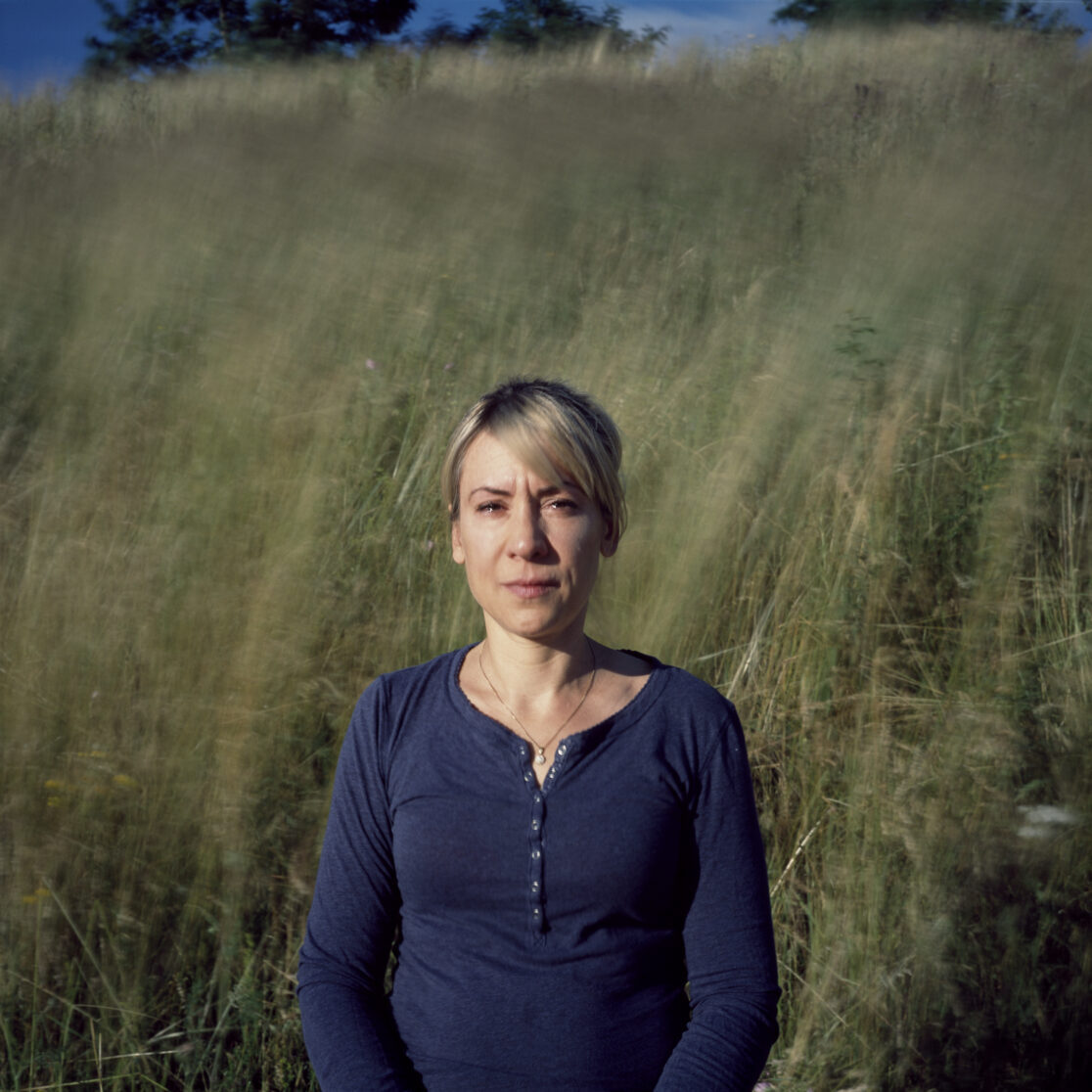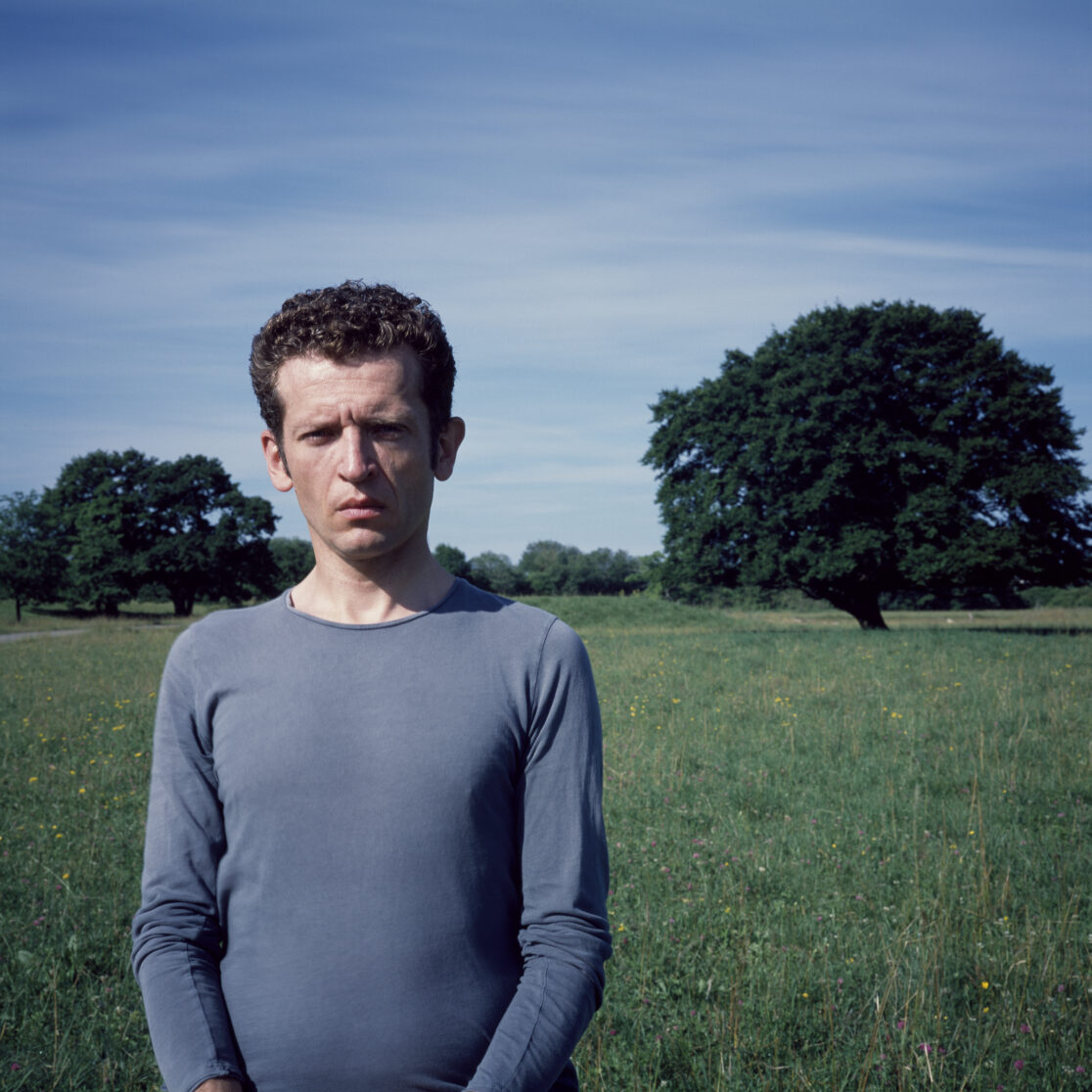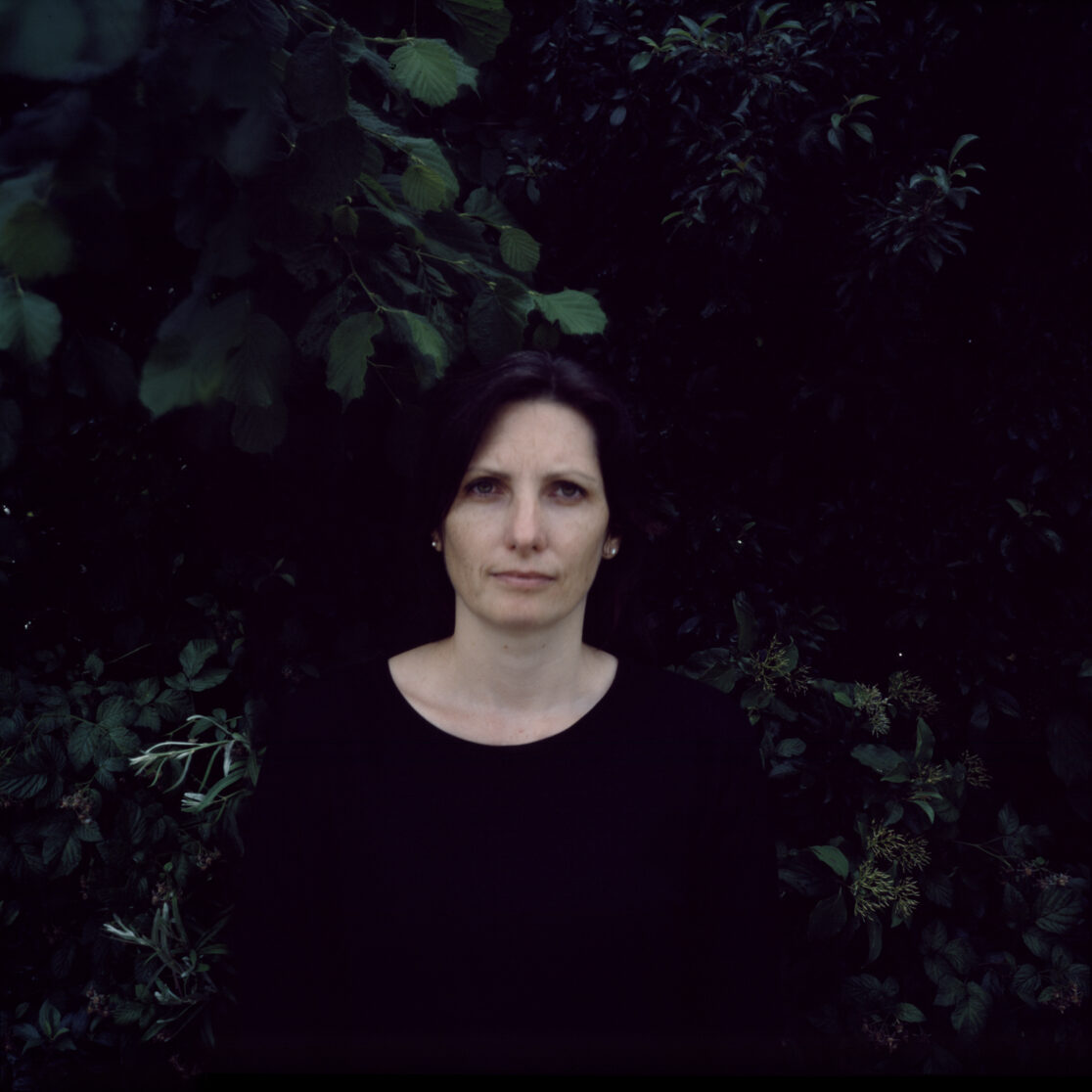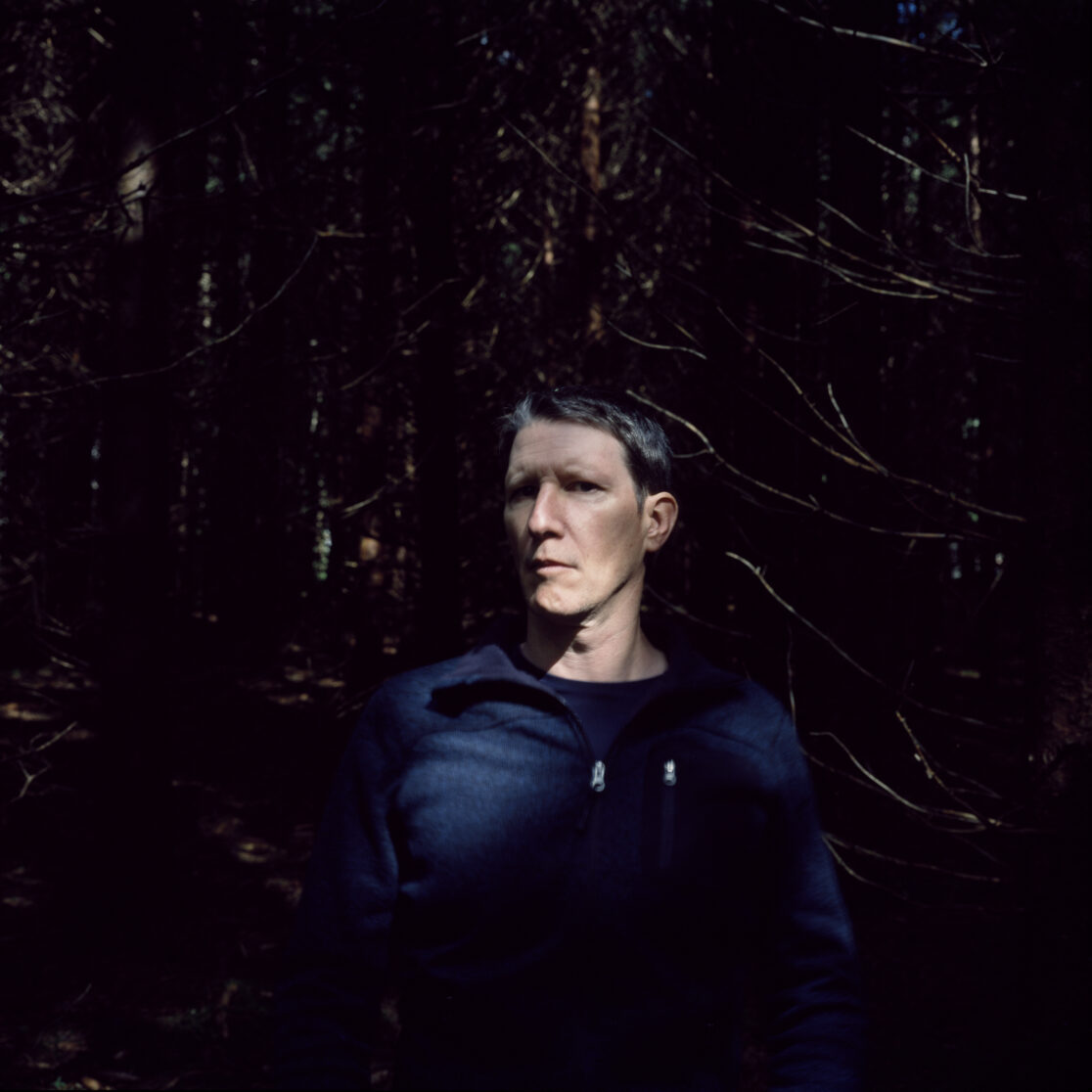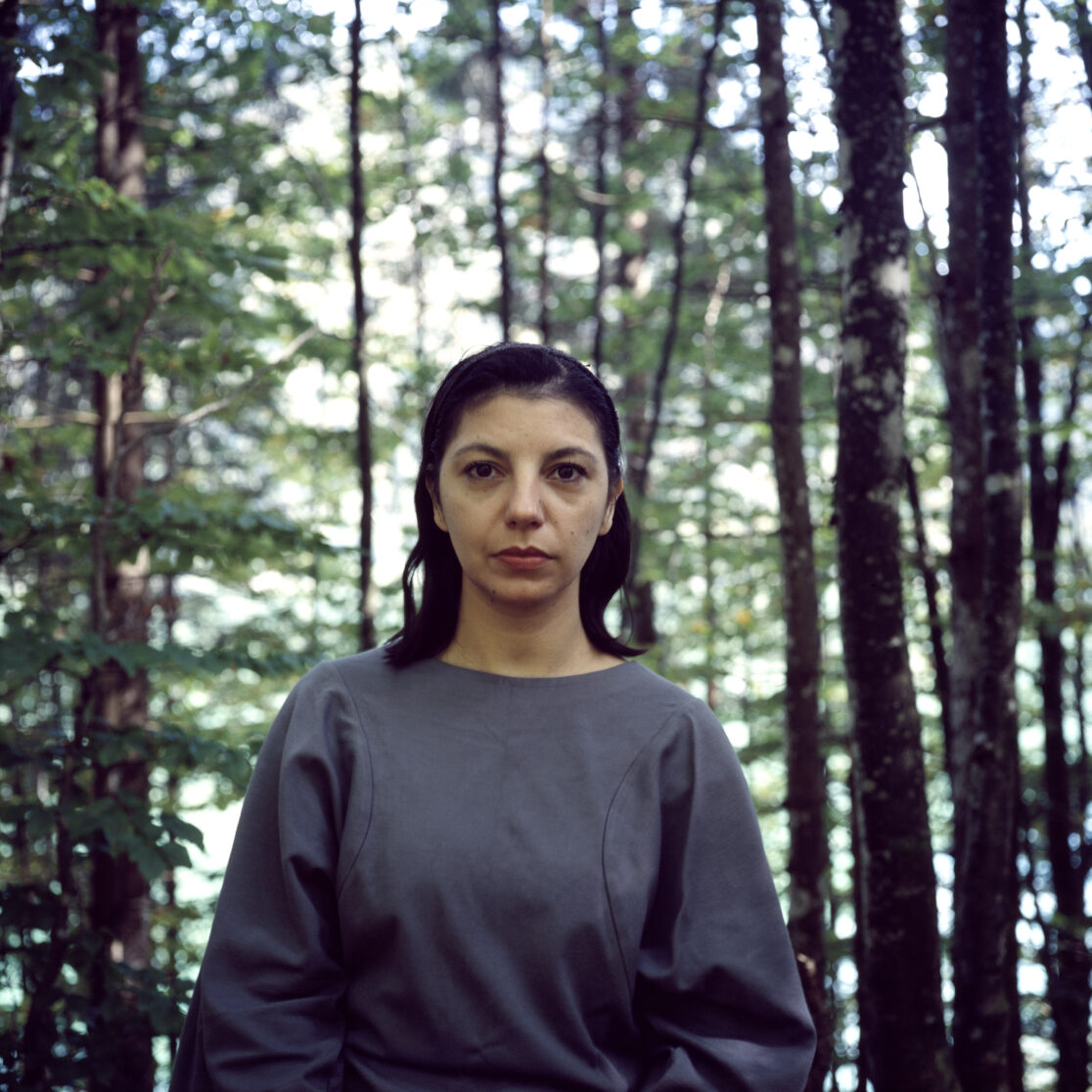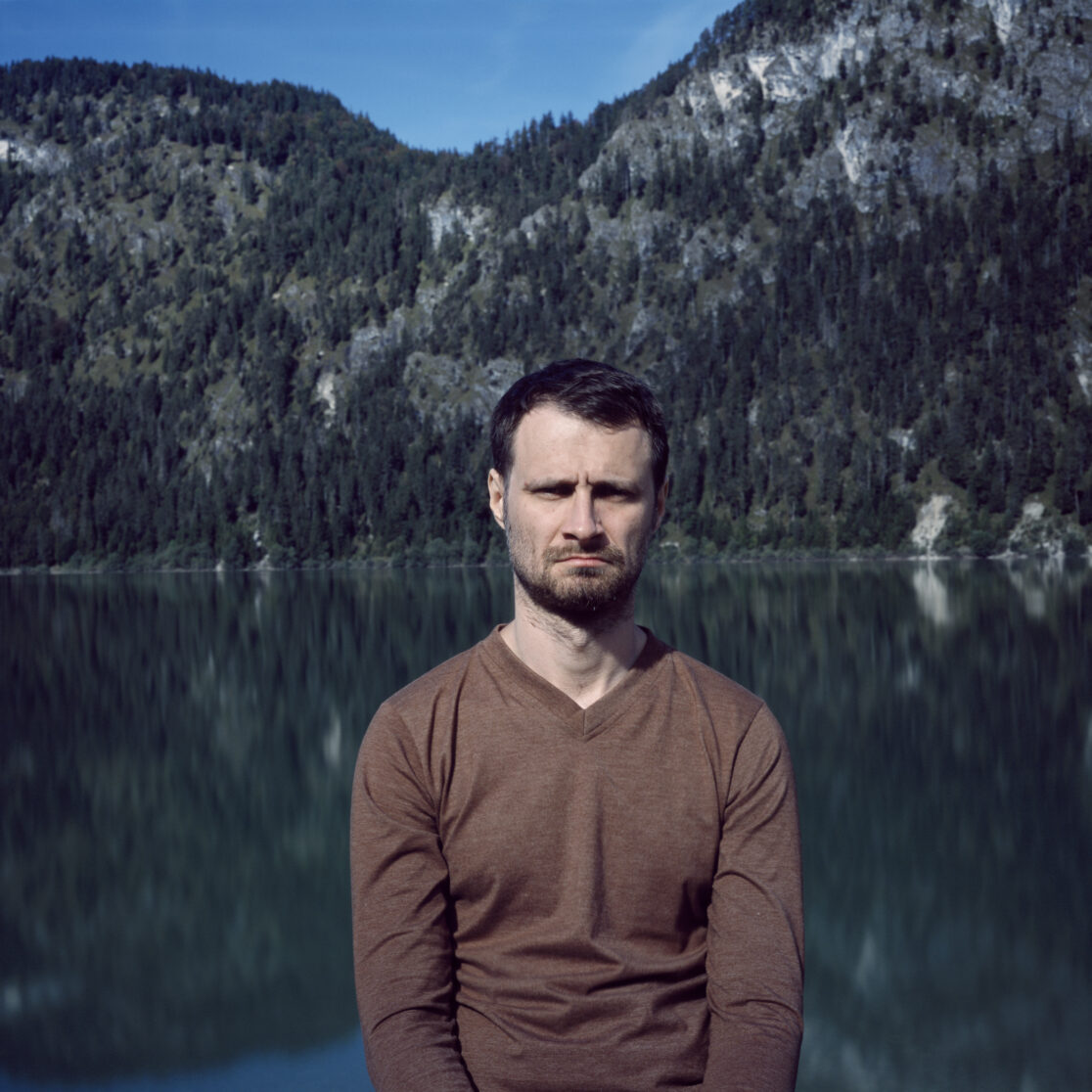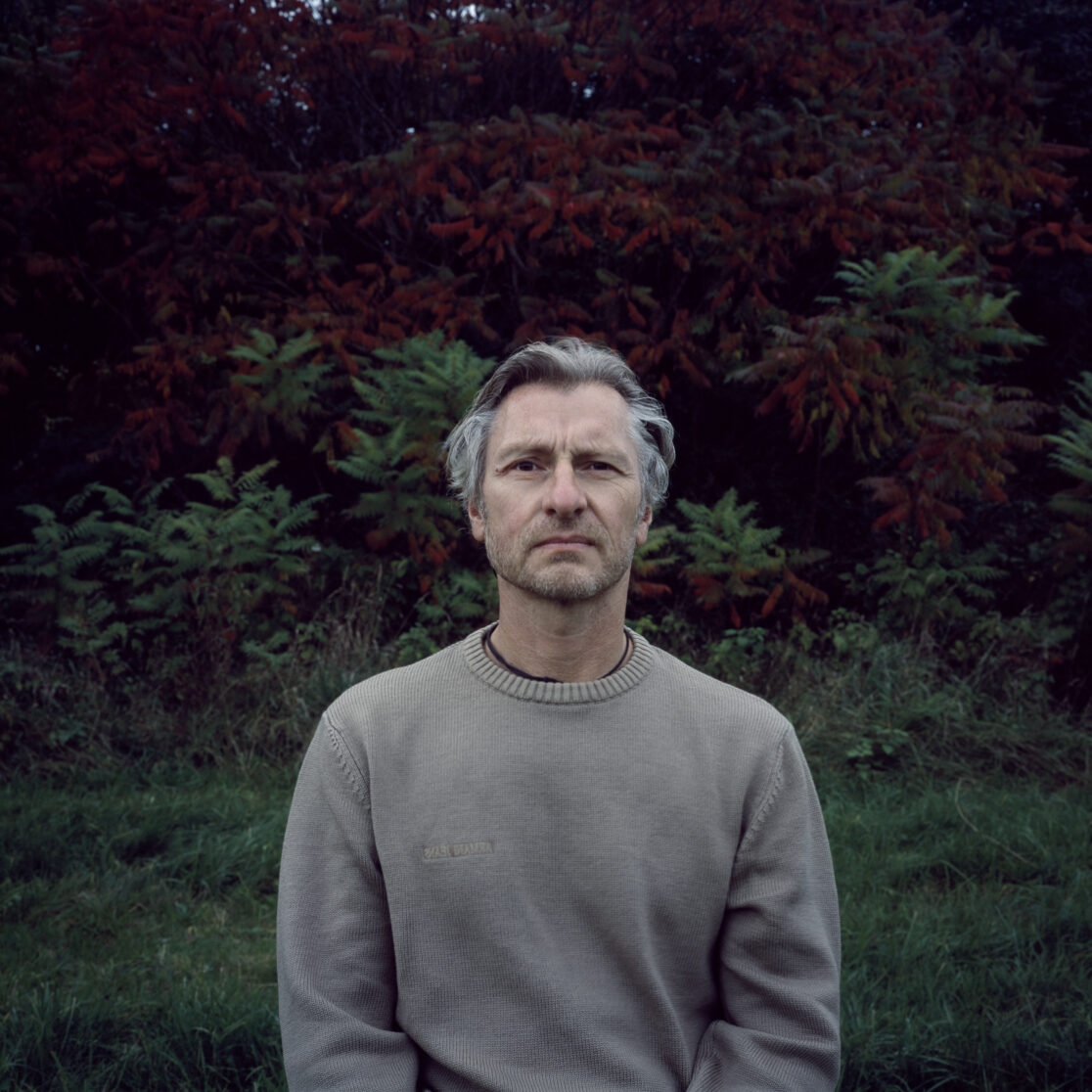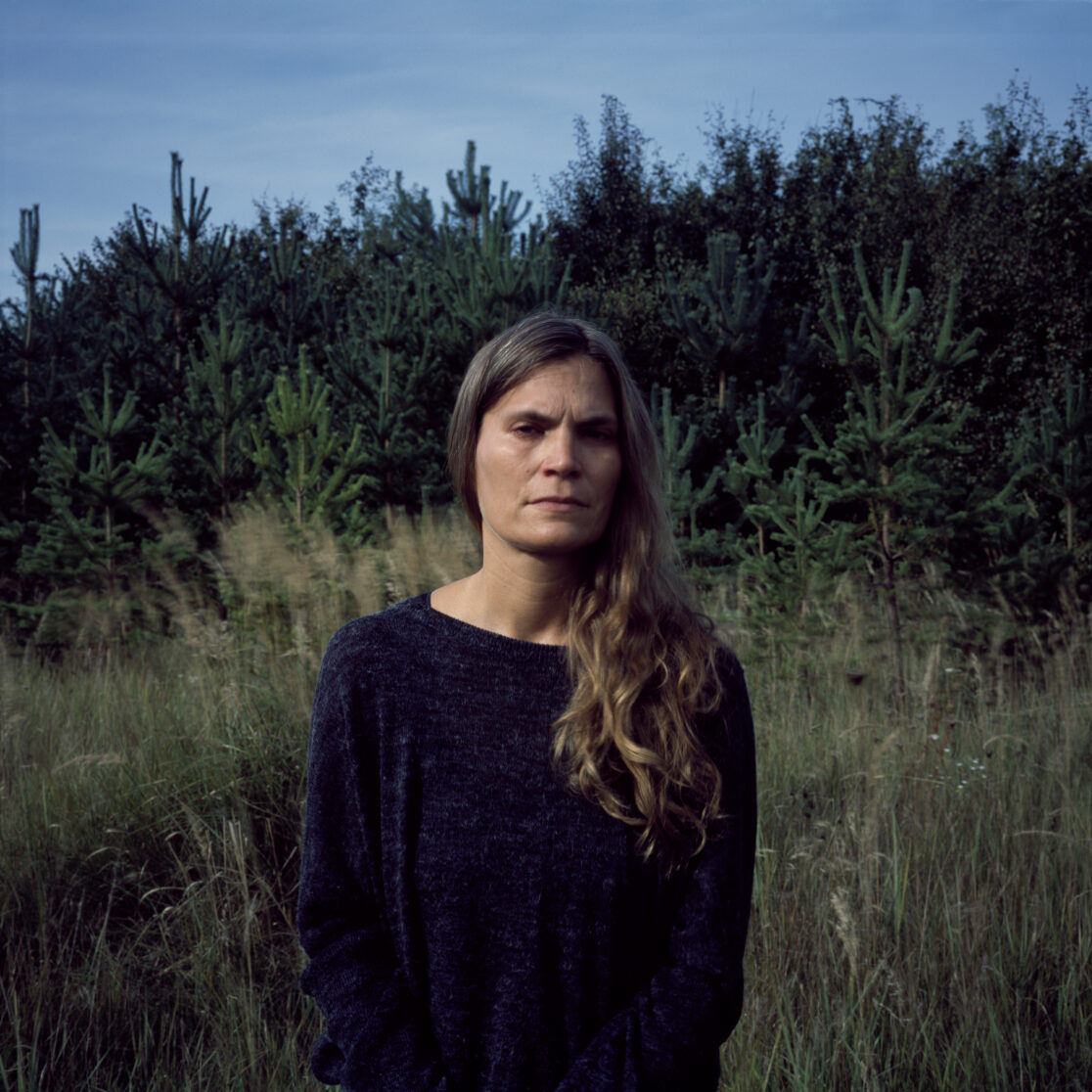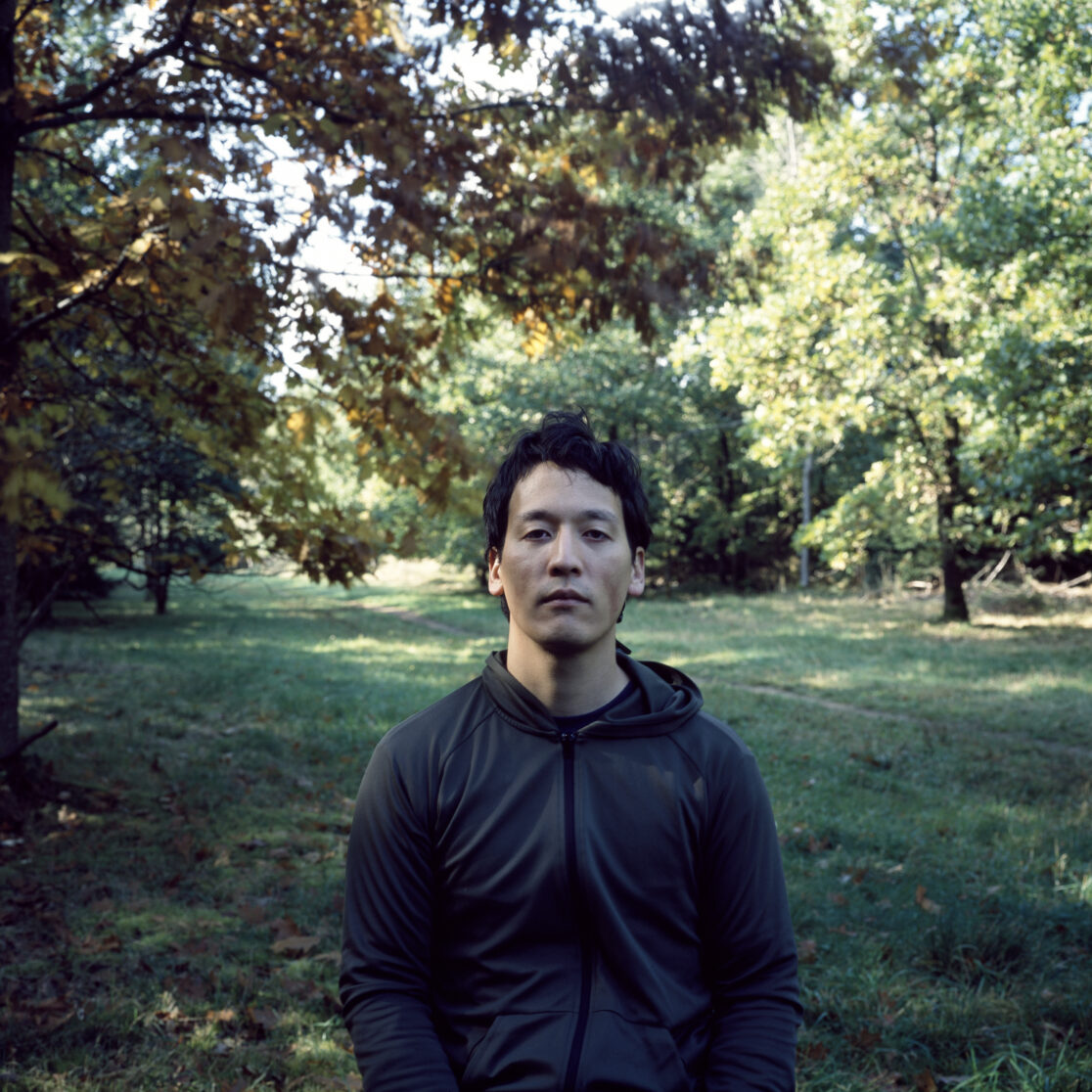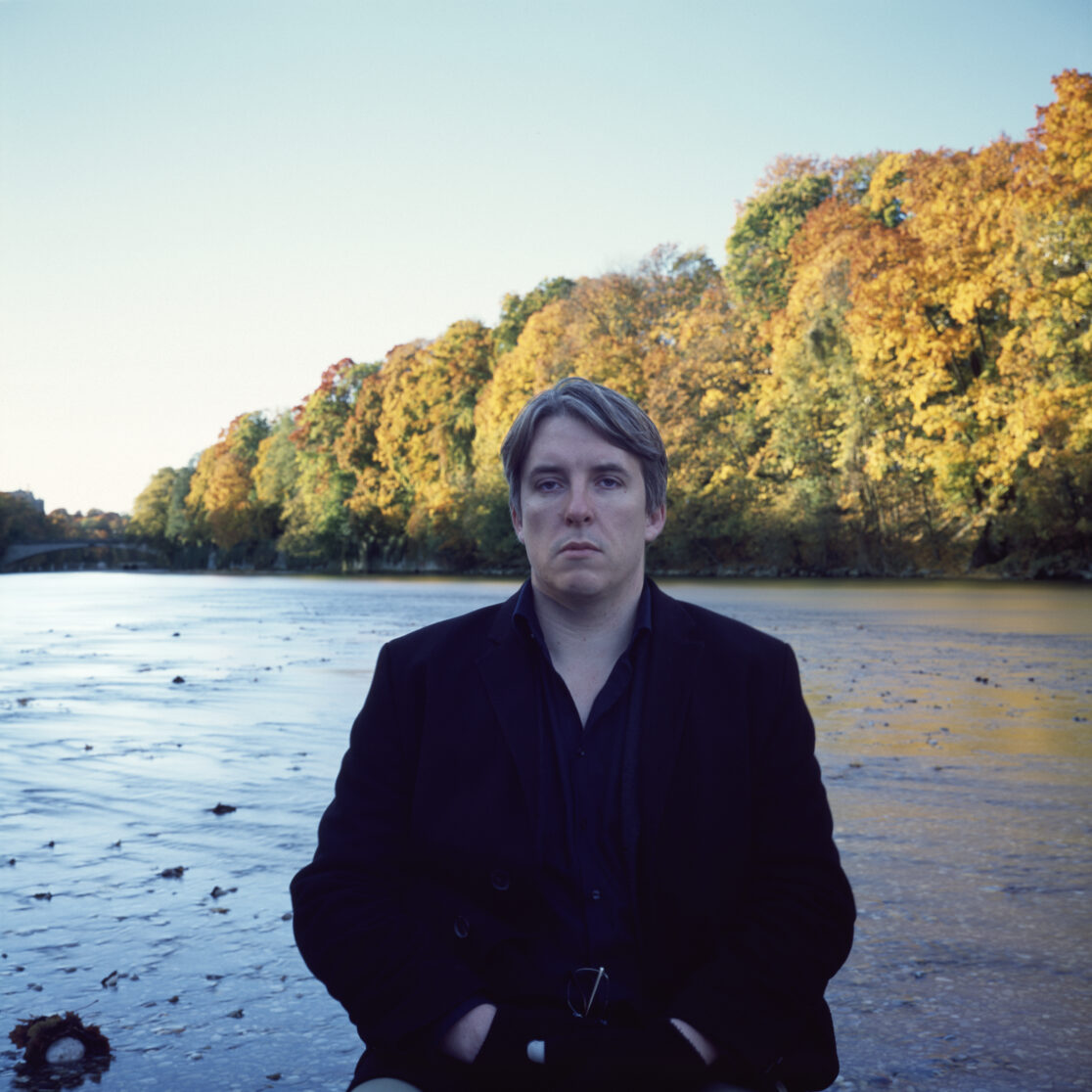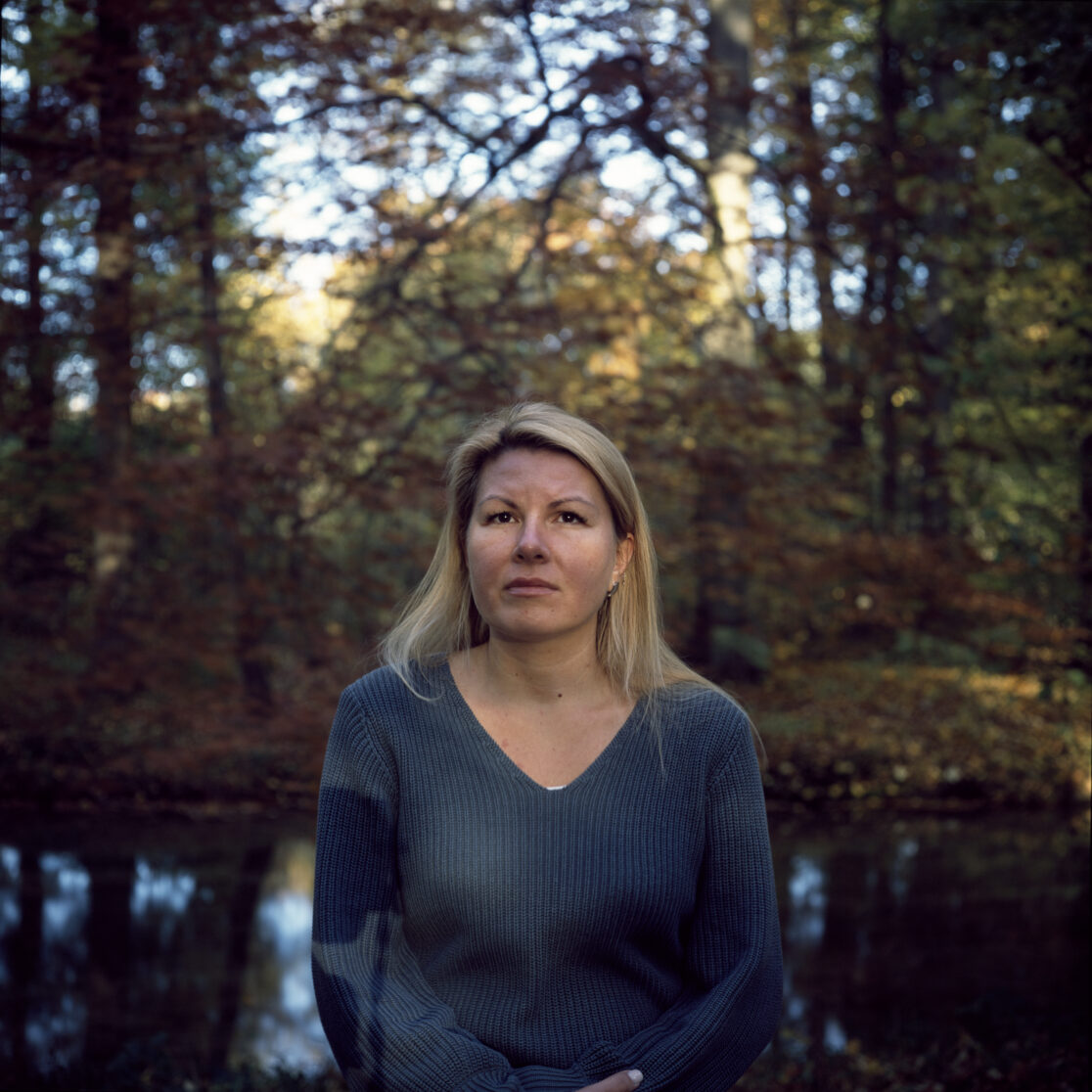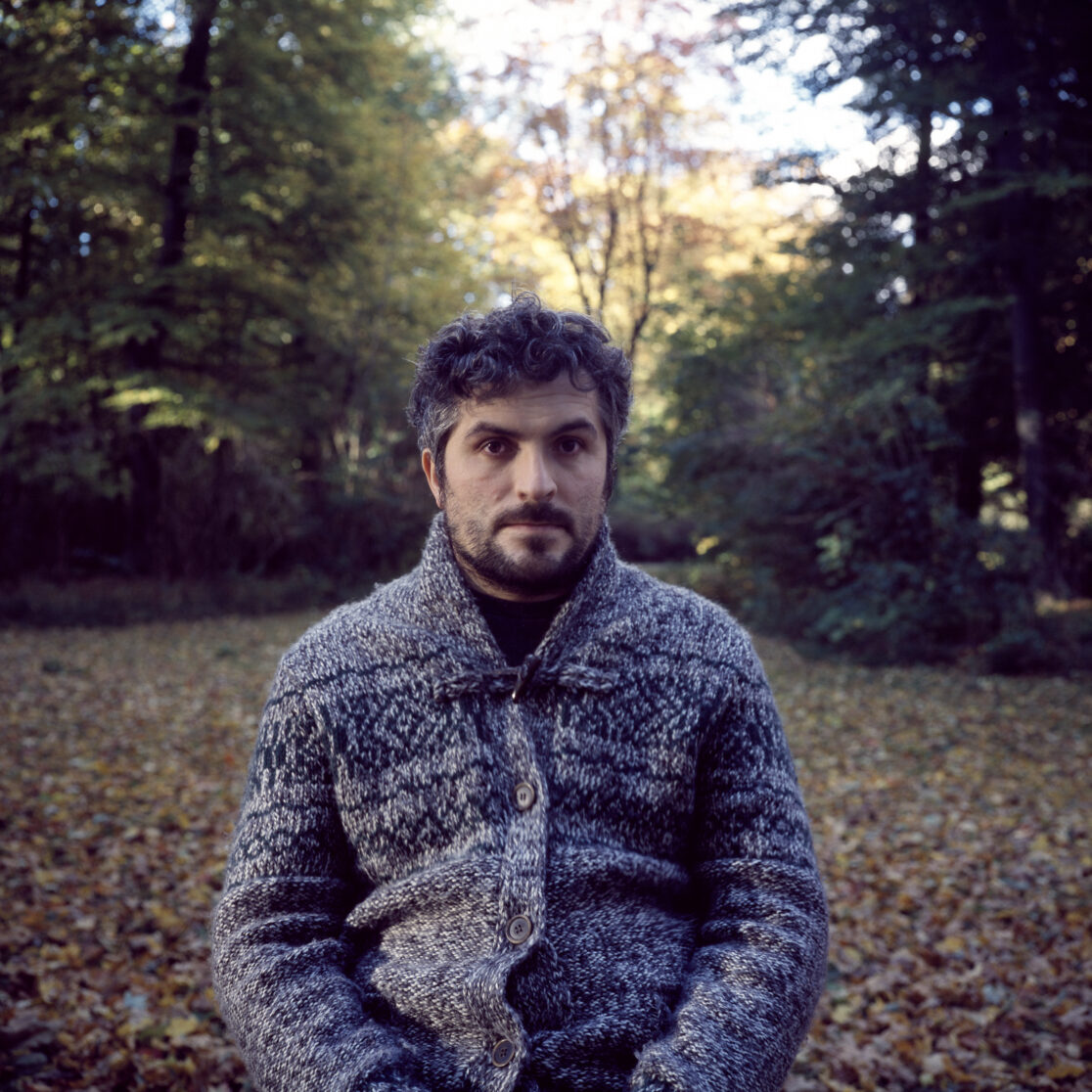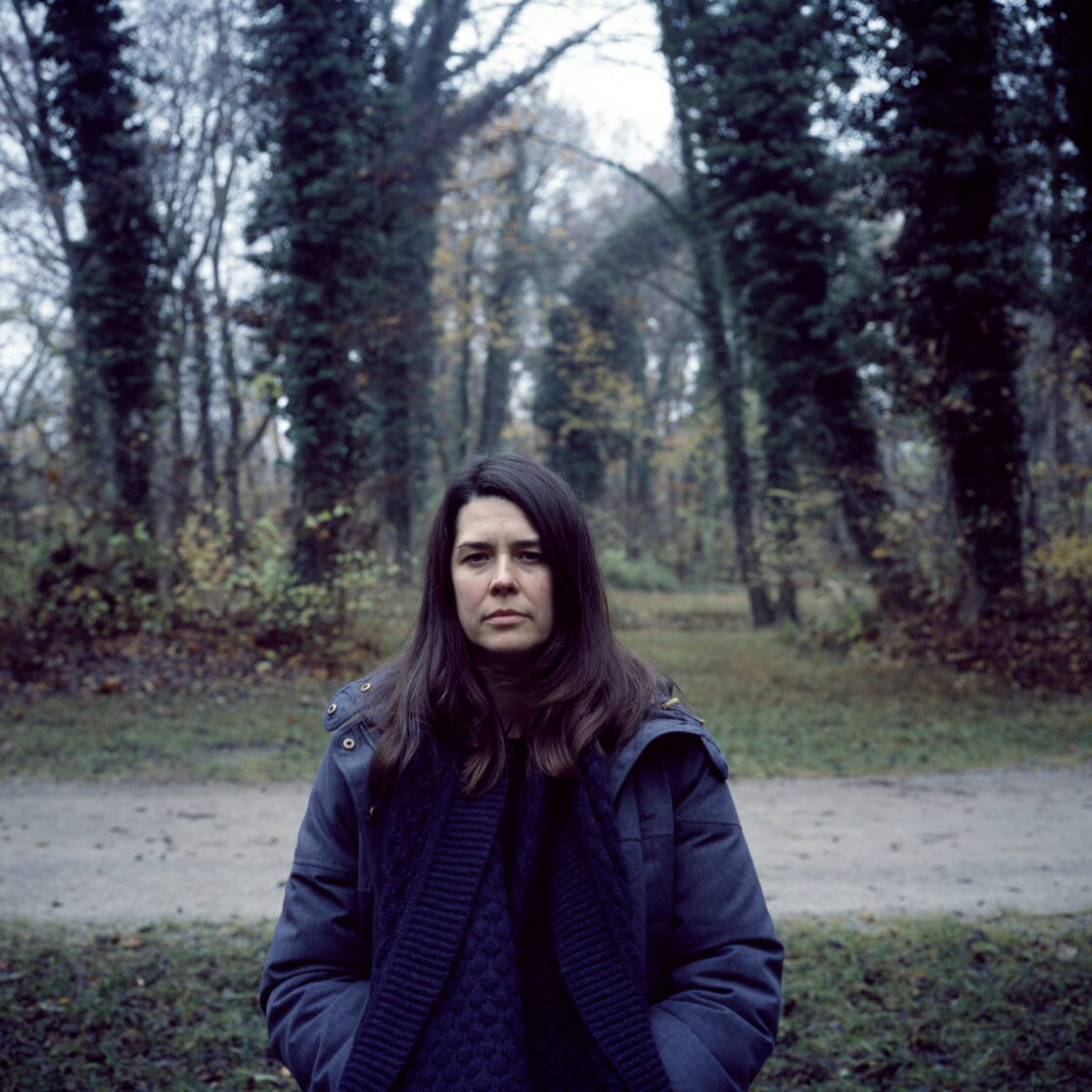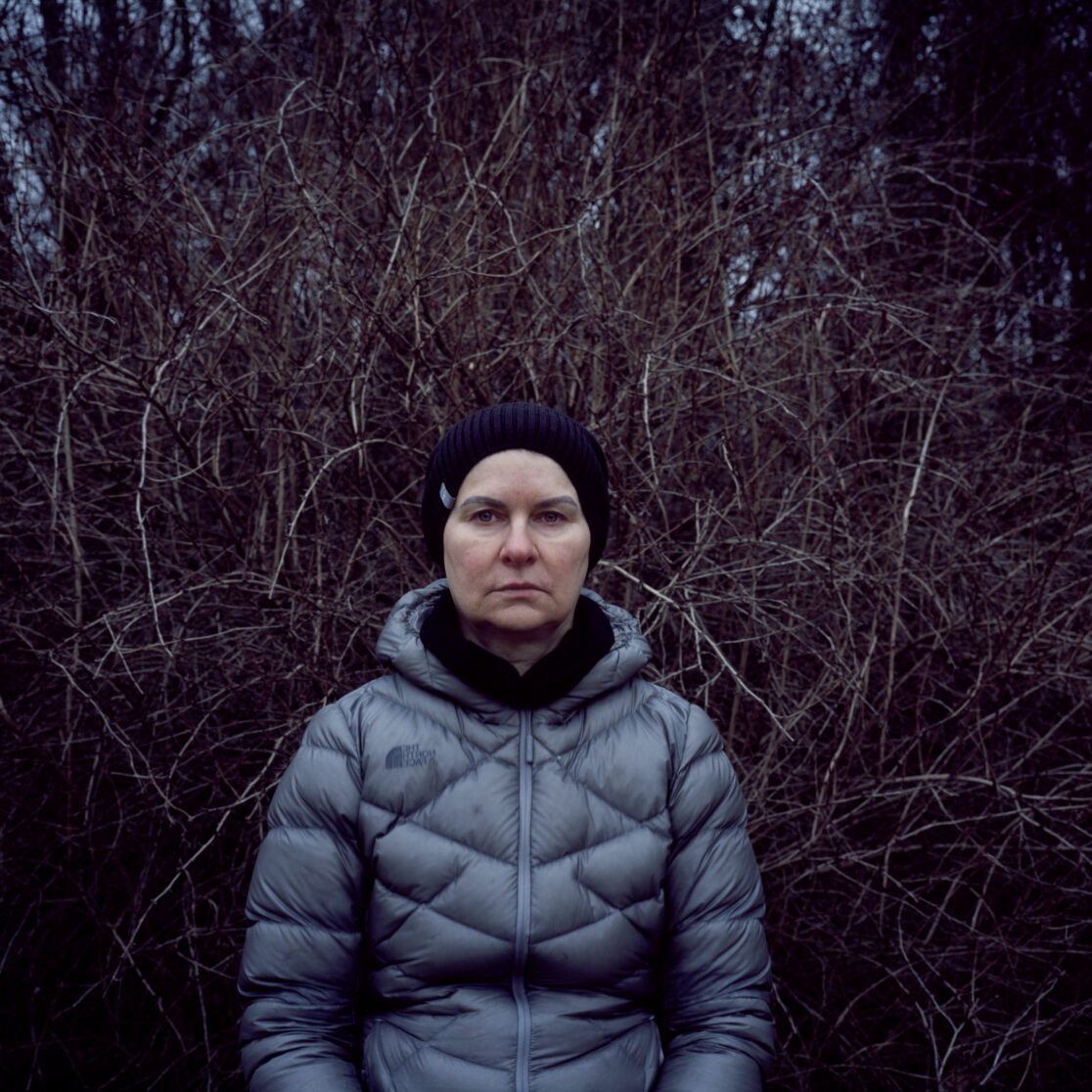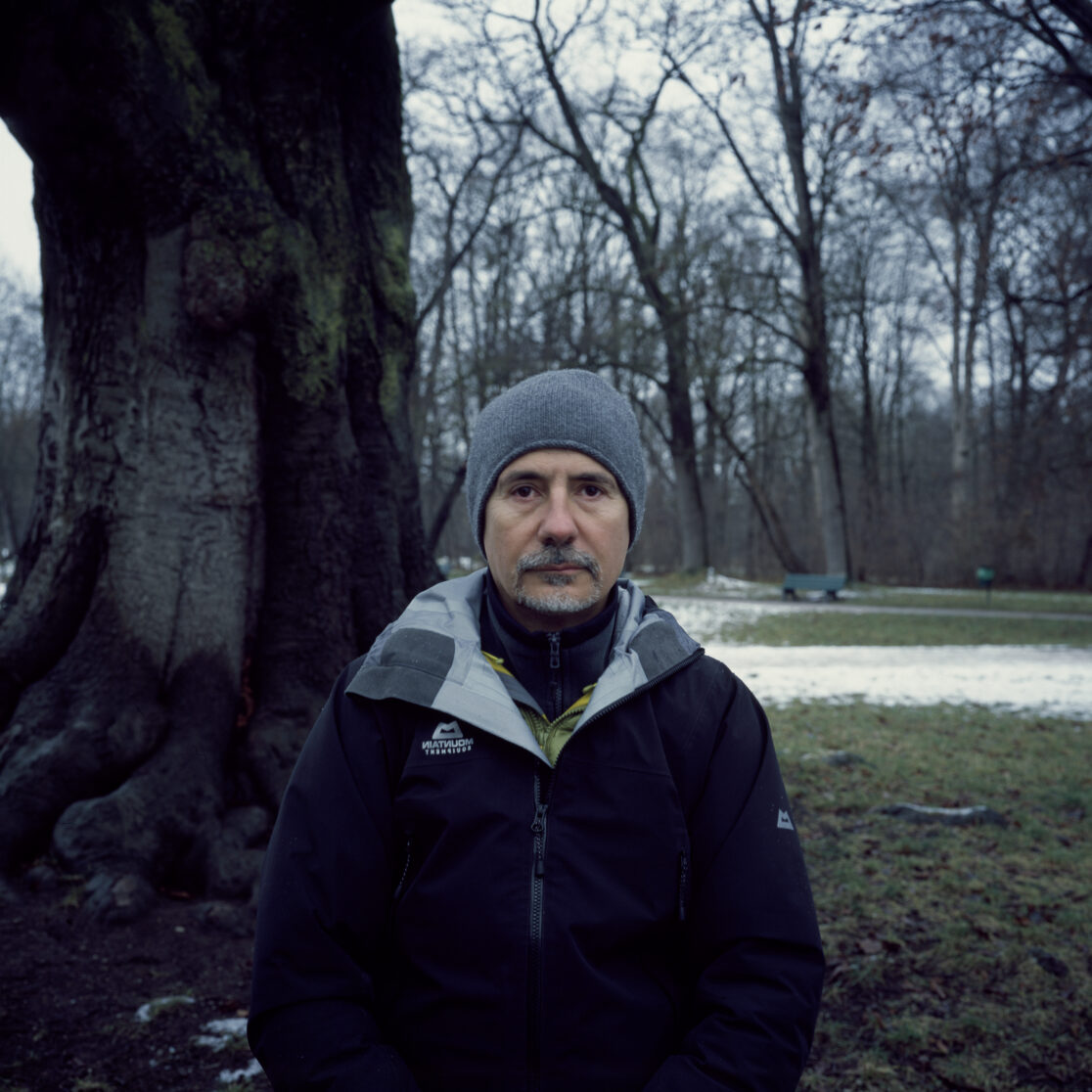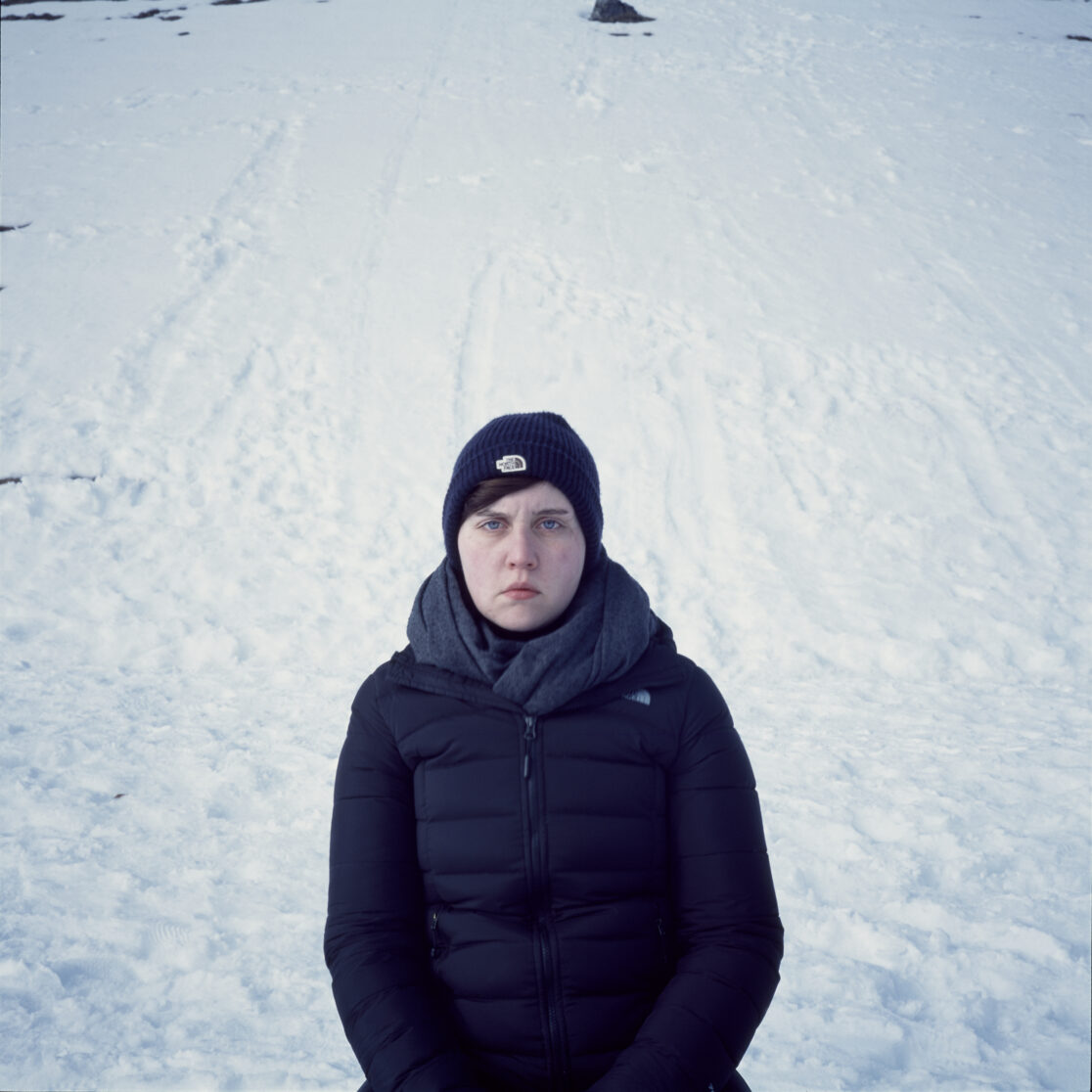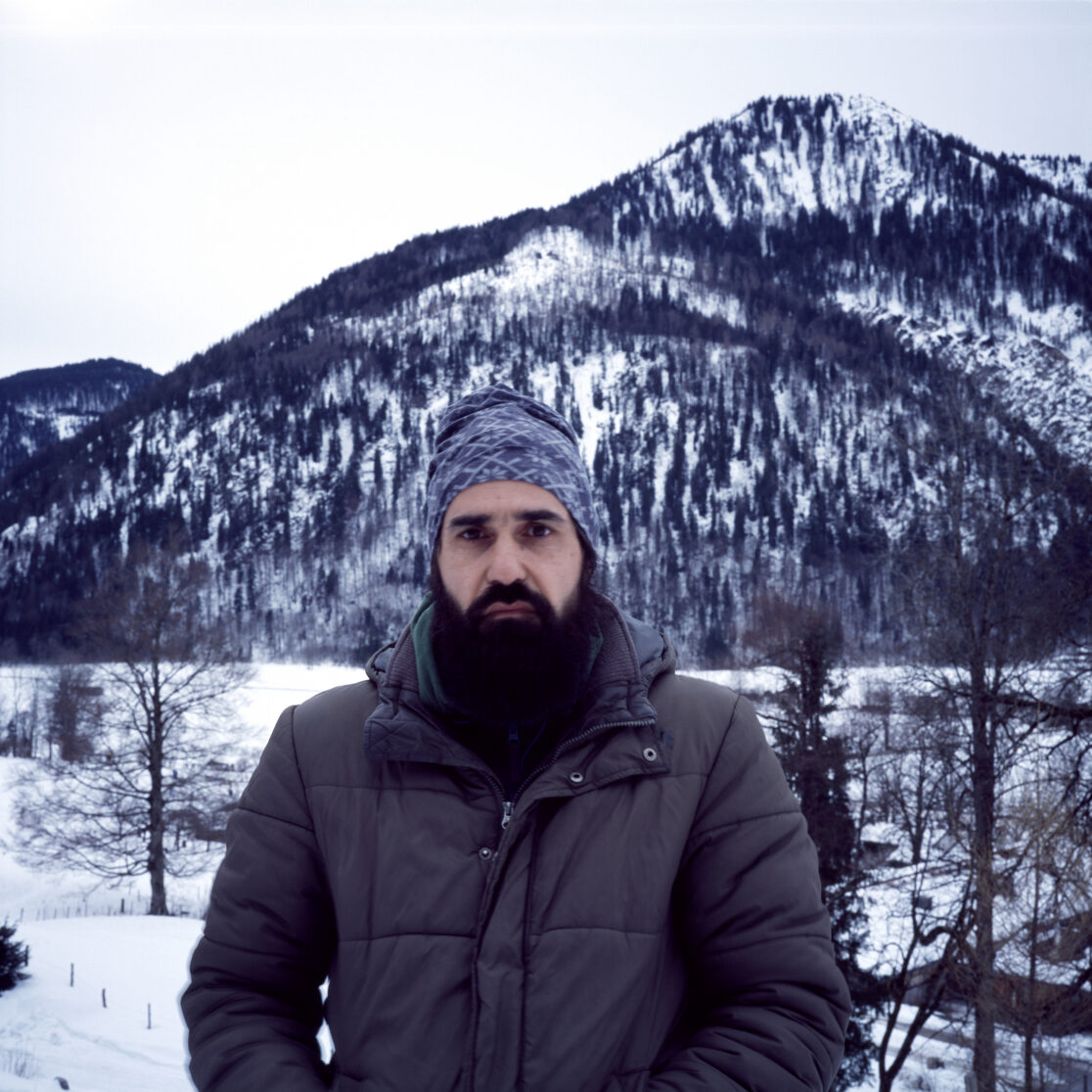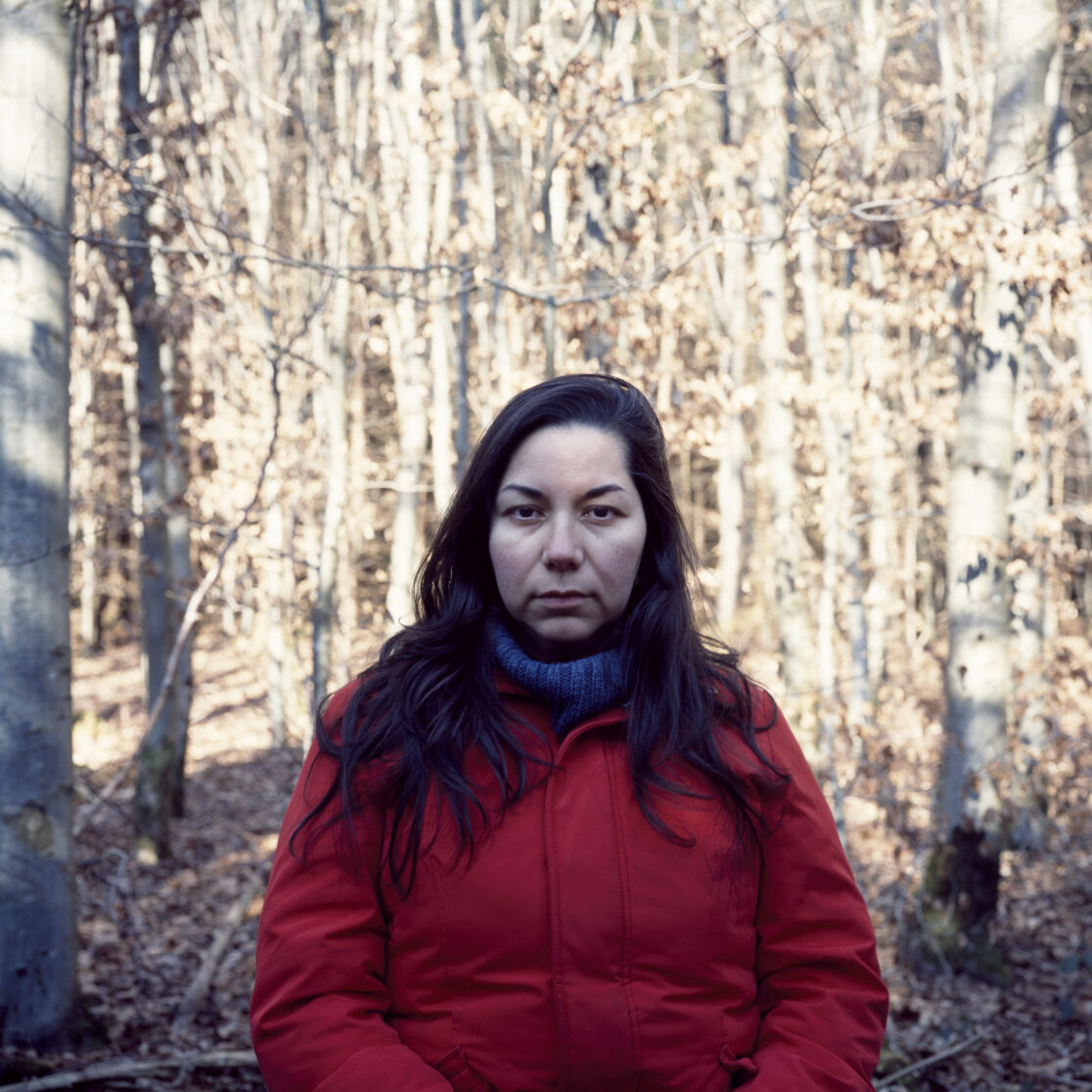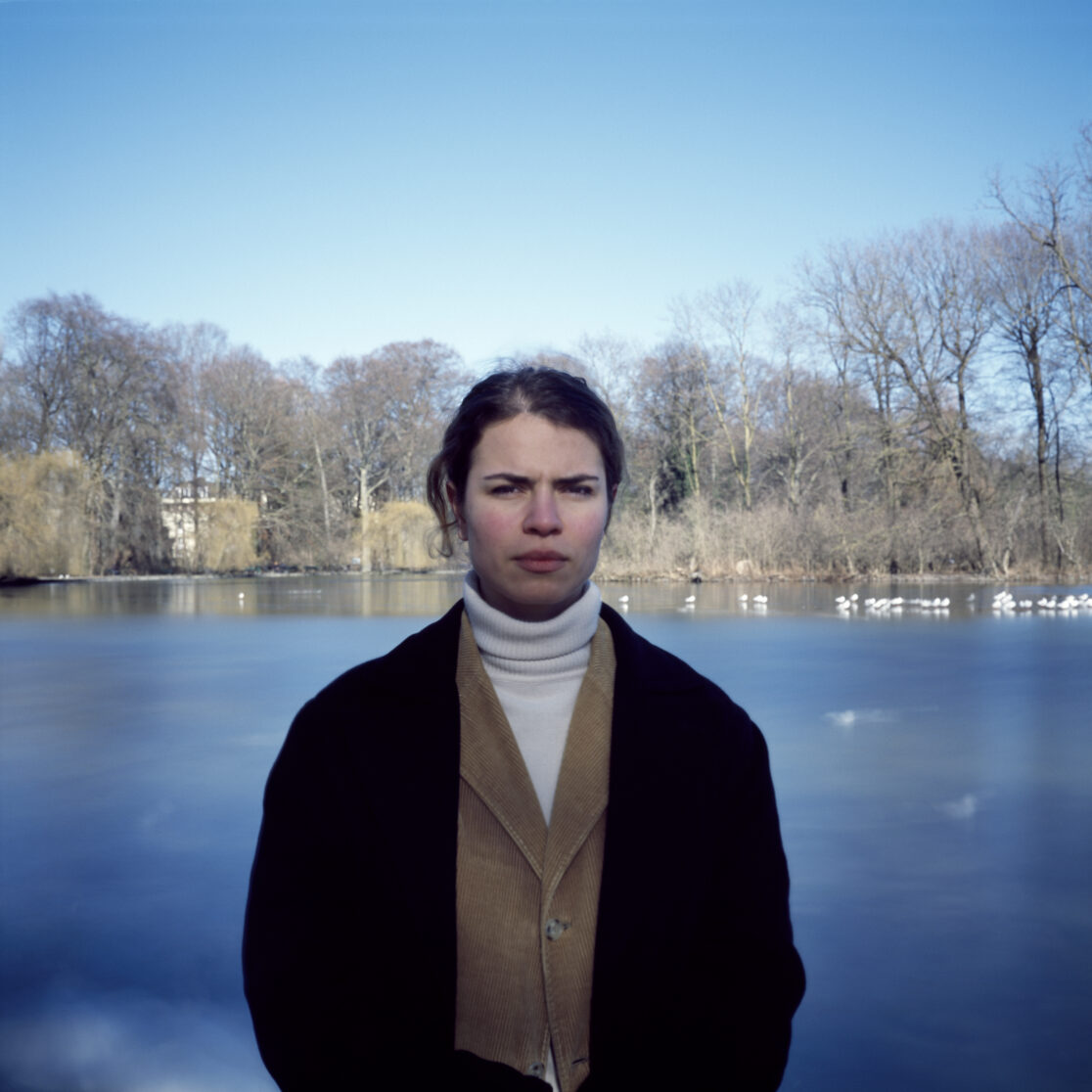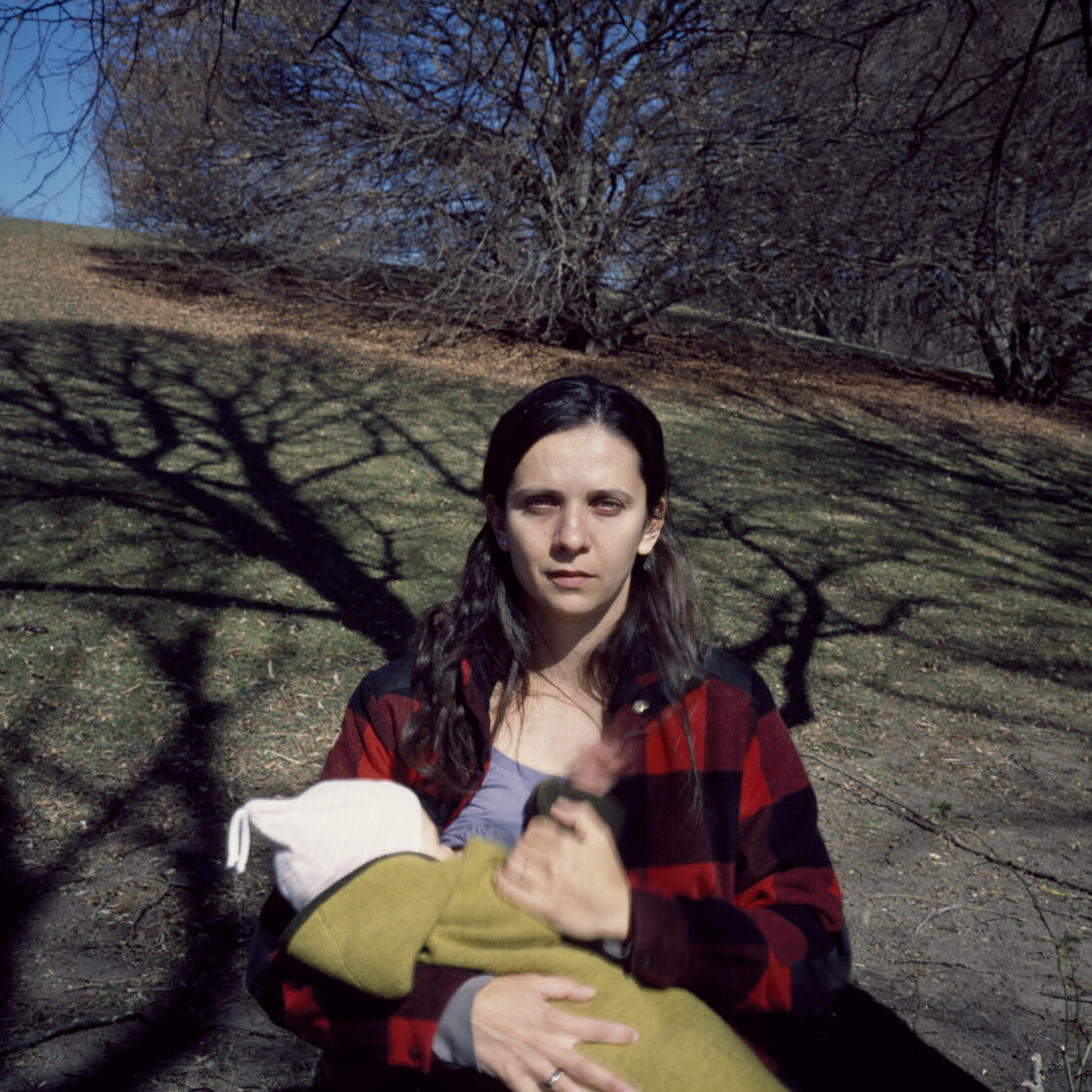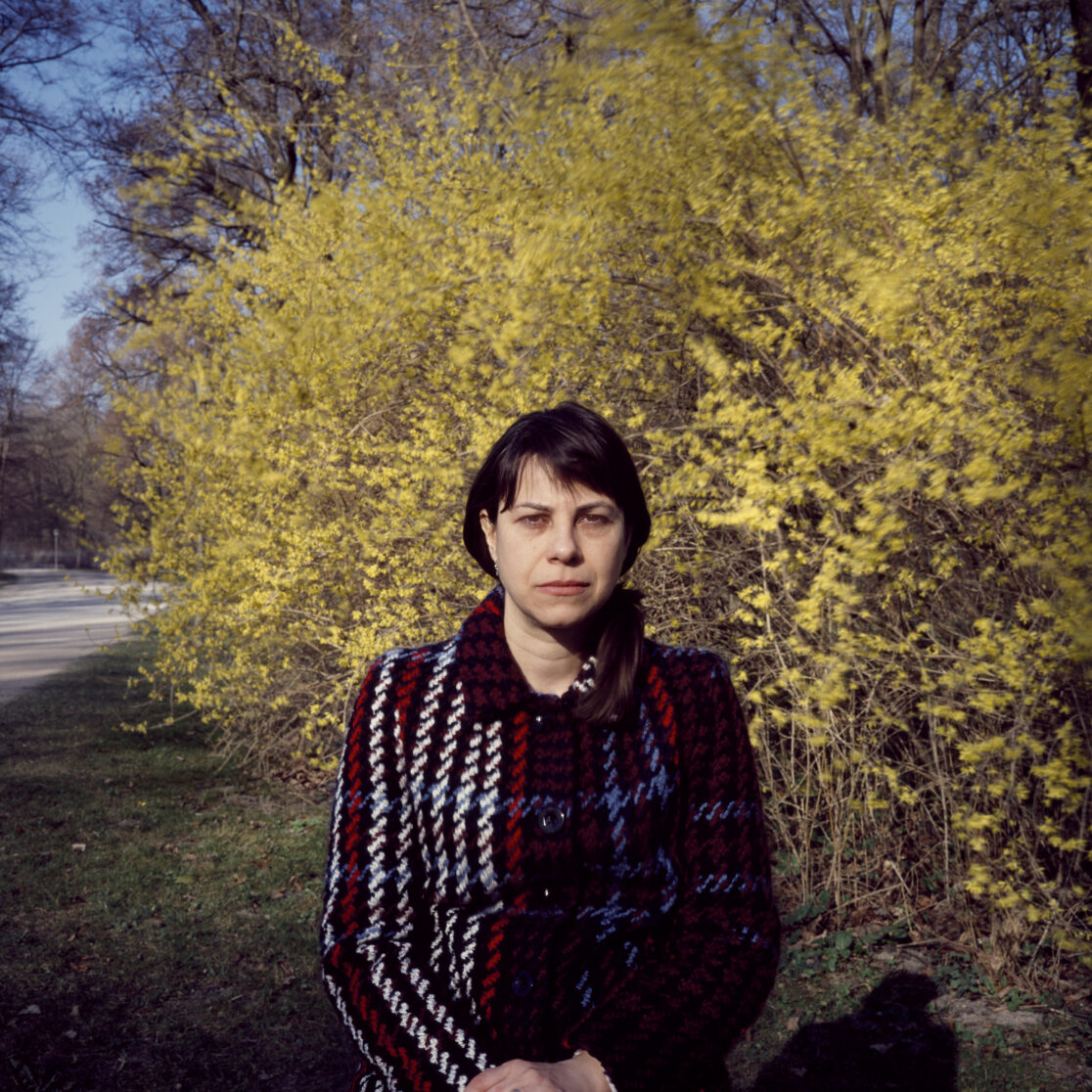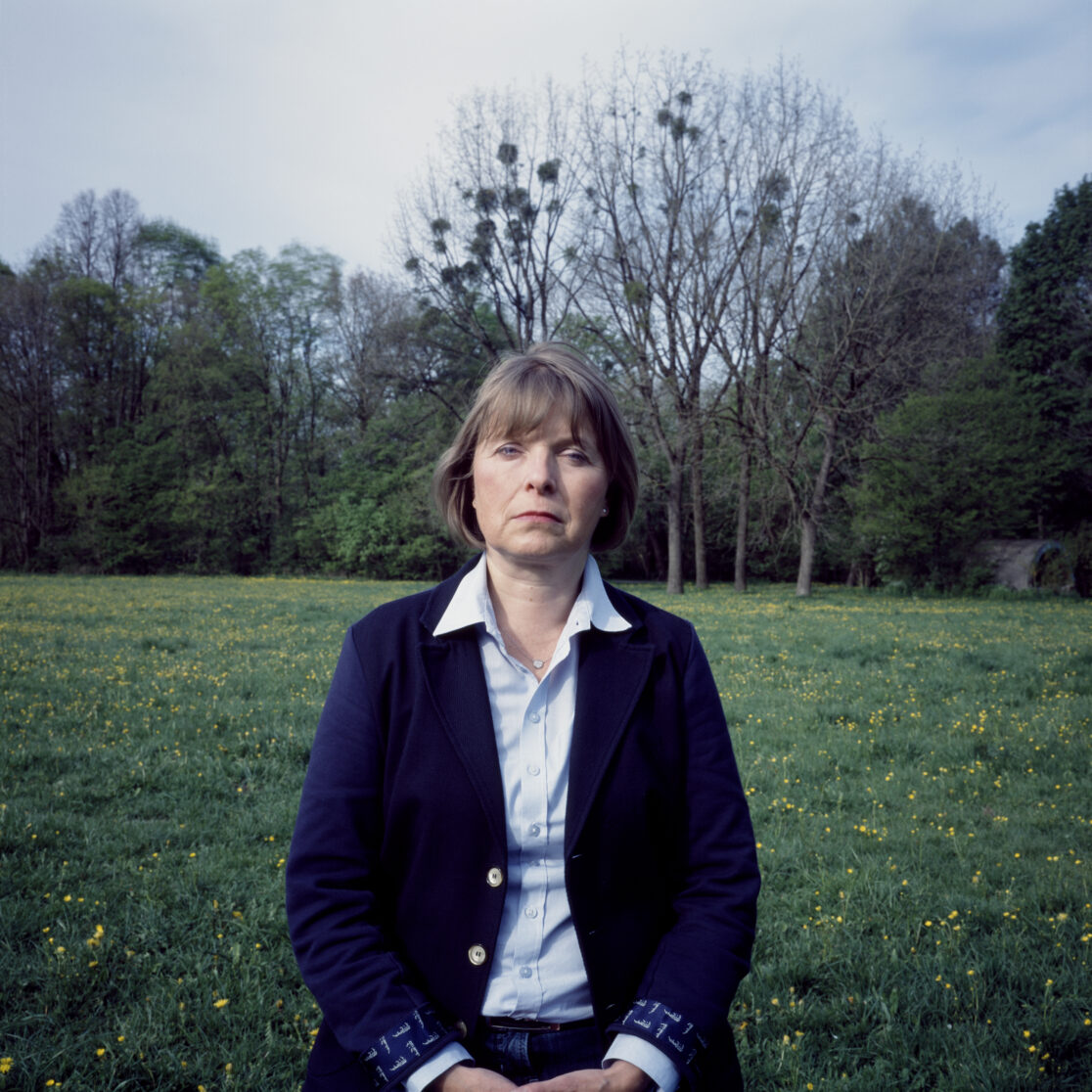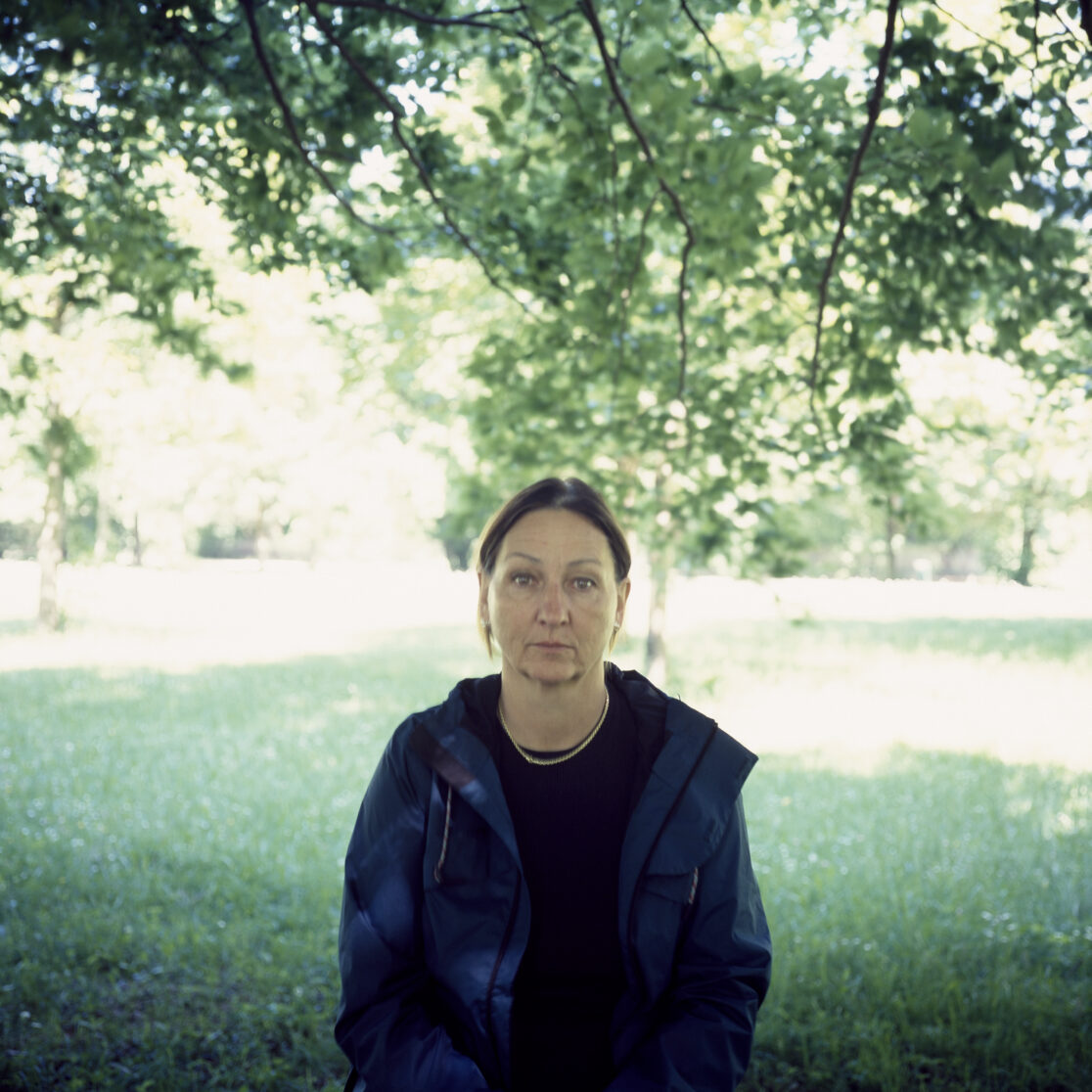Slide projection
Untitled
The project Untitled (2021-present) is a series of long exposure portraits (1-4 minutes), repeating, with contemporary means, the conditions of the early 19th century portraiture which Walter Benjamin understood as the unique product of a convergence between a primitive technology and a certain Zeitgeist. The long exposure time technically required in those days allowed for the subject to breathe into the picture, as Benjamin puts it. What ensued was an image “in which people did not yet gaze into the world isolatedly and godforsakenly. […] There was an aura surrounding them, a medium that lent their gaze, which it suffused, fullness and certainty.” This was a time when being in front of the camera lacked the artificiality and awkwardness of the contemporary photographic pose. Moreover it reflected the spirit of an age at the beginning of the industrial revolution, before capitalism imposed its particular forms of exploitation and imperialism. The repetition of the long exposure time with contemporary sitters reveals a different mood, more fitting to our times of interregnum, when the process of industrialization and capitalist development has reached its limits of sustainability. This photographic series is not an attempt to psychologize the sitters who were in fact given no instructions other than being still for the duration of the picture, but a foray into the phenomenology of the long pose and what it might reveal about the ways we are inhabiting time.

